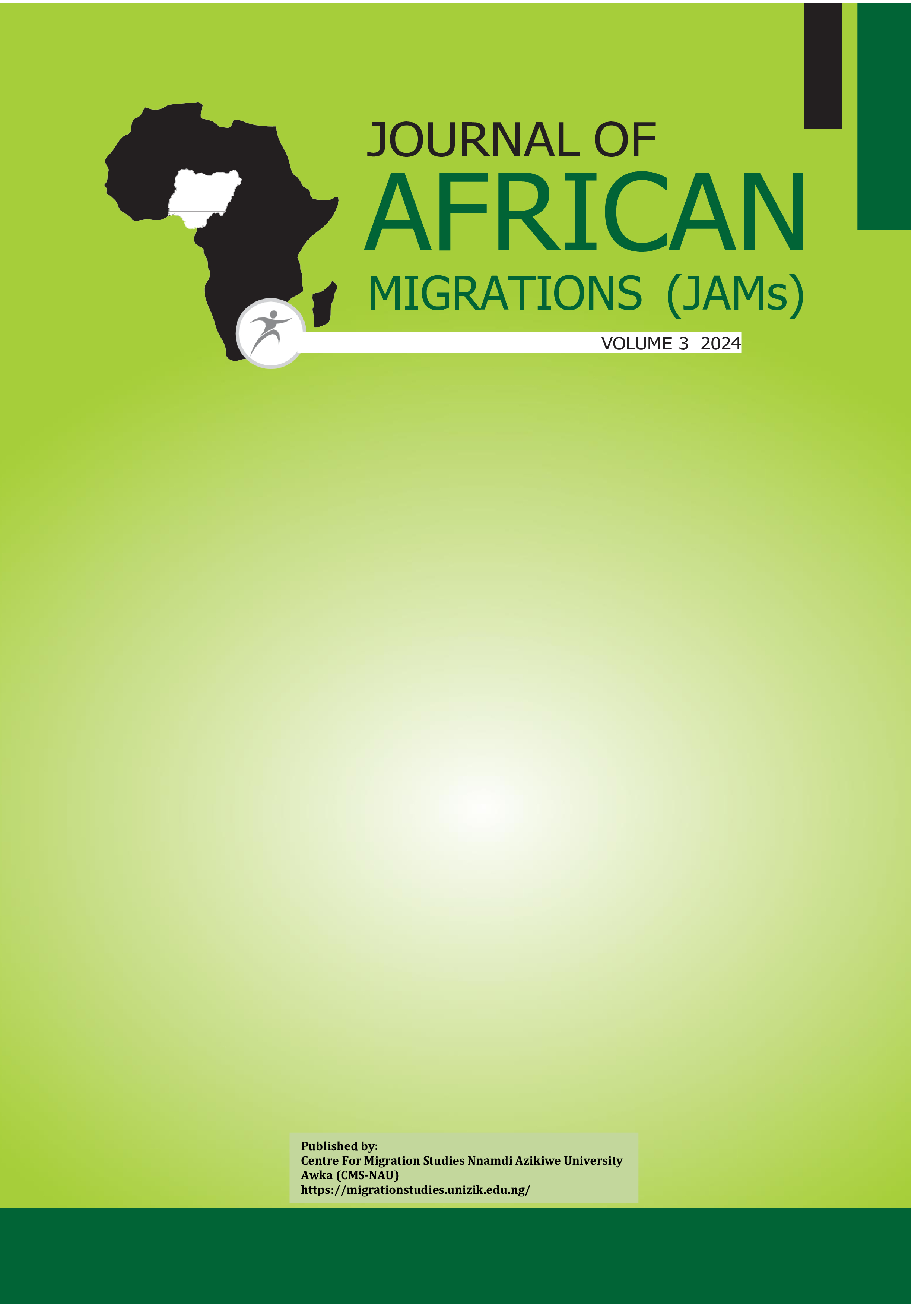Gender Stereotypes and Female Invisibility Amongst Hausa Women Migrants in Awka South LGA
Abstract
In this study, we investigated perceived gender stereotypes and women invisibility amongst Hausa women migrants in Awka South Local Government Area of Anambra State, Nigeria. The study explored the impact of gender stereotypes on Hausa migrant women and how these stereotypes contribute to the invisibility of Hausa migrant women in the study area. Using the snowball sampling technique, 20 Hausa women were selected from the Hausa communities in Awka and Amawbia. Semi-structured interviews were administered to the 20 selected women. The interviews were qualitatively analyzed and four themes bothering on education, early marriage, political participation and engagement with jobs or business activities were identified as common experiences amongst these women. The findings indicated that Hausa women migrants are subjected to stereotyping resulting from religio-cultural differences and this has led to their invisibility in the study area. We concluded that while it is pertinent and urgent to end Hausa migrant women stereotyping, interventions to address these issues must also target the underlying structural factors that shape these experiences.

